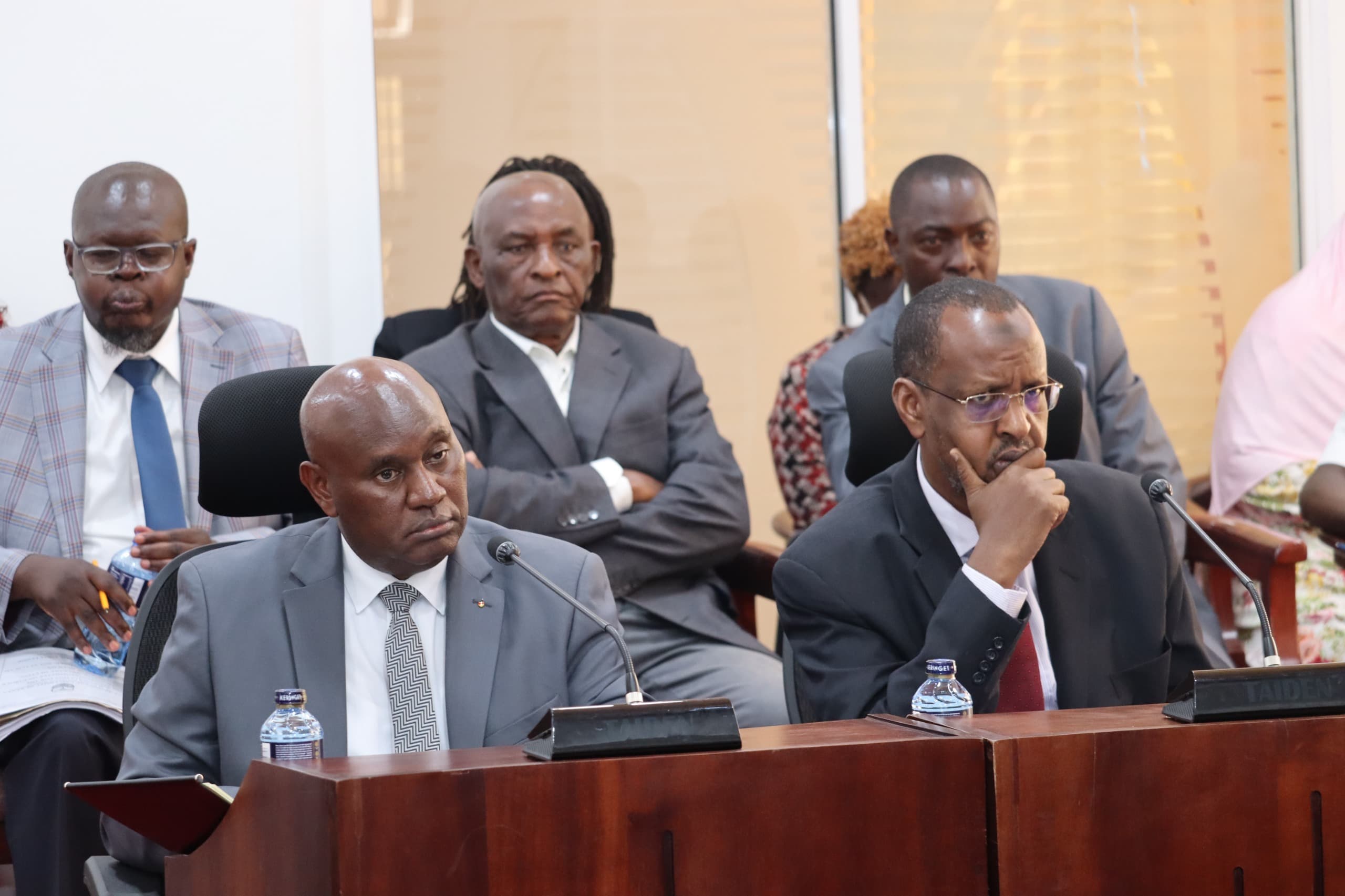We're loading the full news article for you. This includes the article content, images, author information, and related articles.
A Senate investigation has placed newly appointed IEBC Commissioner, Prof. Francis Aduol, at the centre of a Sh4.3 billion pension scandal that threatens the life savings of thousands of Technical University of Kenya employees, raising critical questions of public integrity.

A newly appointed commissioner of the Independent Electoral and Boundaries Commission (IEBC), Professor Francis Aduol, is under investigation by the Kenyan Senate over his alleged role in the collapse of the Technical University of Kenya (TUK) staff pension scheme, a scandal involving Sh4.3 billion in unaccounted-for contributions. The inquiry, led by the Senate Committee on Labour and Social Welfare, scrutinizes Prof. Aduol's tenure as the university's Vice-Chancellor when the alleged financial mismanagement occurred, placing a spotlight on the oversight of public institutions and the security of workers' retirement savings.
The investigation was triggered by a petition from the University Academic Staff Union (UASU), which claims years of financial misconduct led to the scheme's insolvency. Appearing before the committee on Thursday, 30th October 2025 (EAT), Prof. Aduol, who was sworn in as an IEBC commissioner in July 2025, faced intense questioning regarding the university's failure to remit pension deductions. He defended his administration, stating that insufficient funding from the National Treasury forced the university to prioritize operational costs over pension remittances. "The position being presented by RBA, that the university willfully refused to remit money, is not true. The funds from the government were insufficient to pay salaries, taxes and pensions simultaneously," Prof. Aduol submitted to the senators.
At the heart of the scandal are actions taken between 2009 and 2013, before the TUK Staff Retirement Benefits Scheme (TUKSRBS) was formally registered. During this period, the university and its predecessor, the Kenya Polytechnic University College, deducted pension contributions from staff salaries. However, these funds were deposited into a Kenya Commercial Bank (KCB) savings account that was not compliant with the regulations of the Retirement Benefits Authority (RBA).
Documents presented to the Senate committee revealed that this account had accumulated a total of Sh244.9 million by April 2013. Shockingly, within a month, the balance had plummeted to just Sh9.5 million by 8th May 2013. The university only applied to register the official pension scheme on 29th May 2013, after the funds had vanished. The scheme was formally registered in November 2013, but the missing millions were never transferred into it. Prof. Aduol was a signatory to this controversial KCB account, alongside other senior university officials.
The consequences for the 1,850 members of the pension scheme have been devastating. RBA Chief Executive Officer, Charles Machira, described the scheme's financial state as "catastrophic" during his appearance before the Senate. He reported that the scheme currently holds assets worth only Sh775 million against liabilities of approximately Sh4.3 billion. This translates to a funding level of about 17 percent, meaning a member entitled to Sh1 million in retirement benefits would only receive about Sh170,000.
Following a petition by the RBA in 2017, the High Court ordered the liquidation of the scheme in July 2024, appointing an official receiver to manage the remaining assets. Union officials have painted a grim picture of the human cost, with some members having died while waiting for their dues, and many others retiring into poverty and psychological distress.
The TUK scandal is not an isolated incident but reflects a broader, systemic issue within Kenya's pension sector. A 2024 report by the Auditor General, Nancy Gathungu, revealed over 260,000 cases of fraudulent activities in pension and health insurance schemes, with losses exceeding Sh67 billion between 2013 and 2020. This widespread mismanagement has eroded public trust in social protection systems. The Senate's probe into TUK is seen as a critical test of accountability for public officials entrusted with employee welfare. Senators have called for a full forensic audit to trace the missing funds and hold all responsible parties, including the university management and involved banks, to account.
Keep the conversation in one place—threads here stay linked to the story and in the forums.
Sign in to start a discussion
Start a conversation about this story and keep it linked here.
Other hot threads
E-sports and Gaming Community in Kenya
Active 9 months ago
The Role of Technology in Modern Agriculture (AgriTech)
Active 9 months ago
Popular Recreational Activities Across Counties
Active 9 months ago
Investing in Youth Sports Development Programs
Active 9 months ago